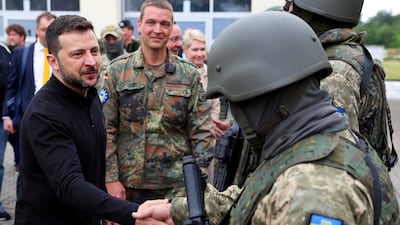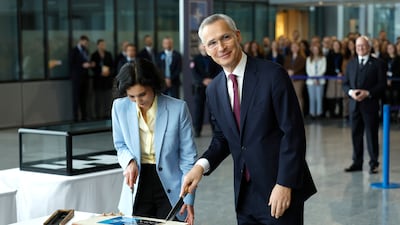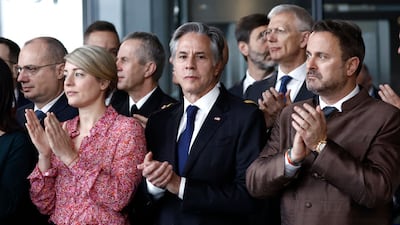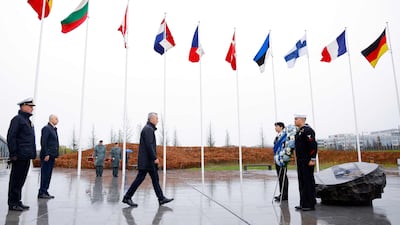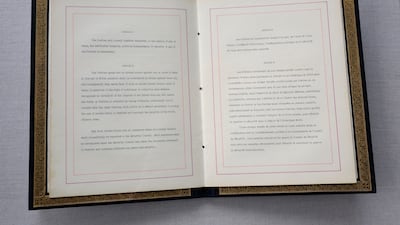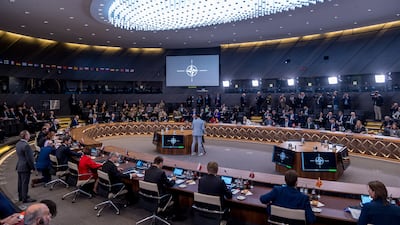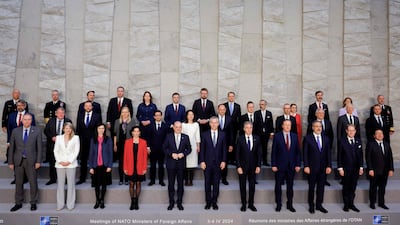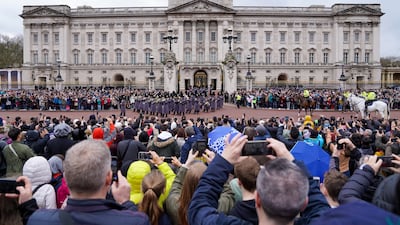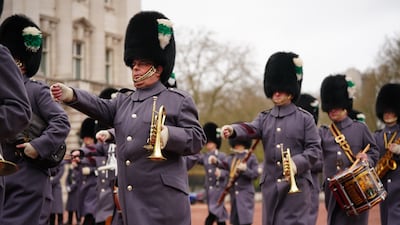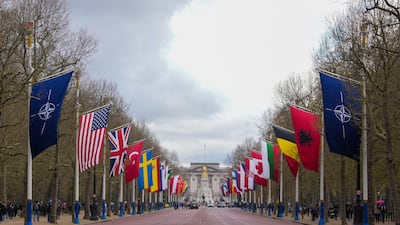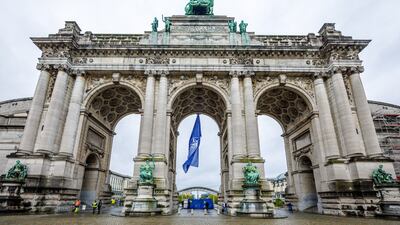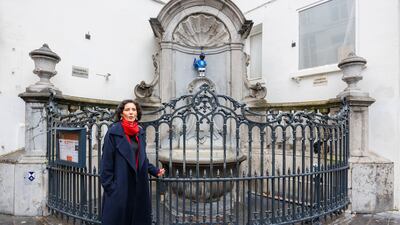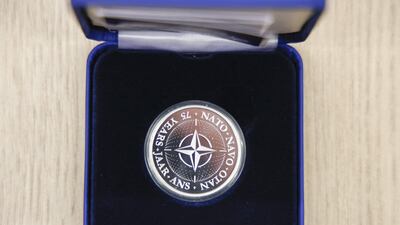Ukraine is set to receive €40 billion ($43.14 billion) for military aid next year from Nato allies, two European diplomats said, as the alliance's leaders prepare to meet in Washington next week.
The latest pledge forms part of a multiyear commitment to keep military aid for Kyiv at the same level as since Russia's full-scale invasion of Ukraine in 2022, a move supported by Nato Secretary General Jens Stoltenberg.
The pact includes a provision to re-evaluate allied contributions at future Nato summits as member states did not back Mr Stoltenberg's original request for a multiyear pledge.
Allies also decided to have two reports over the next year to establish which country supplies what to Ukraine, one of the diplomats said, to meet demands for more transparency over burden-sharing in the alliance.
Member states "will aim to meet this pledge through proportionate contributions", the agreement said.
The financial pledge is part of a broader Ukraine package that Nato leaders will agree on when they gather for the Washington summit from July 9 to 11.
Last month, allies decided Nato would assume a greater role in co-ordinating arms supplies to Ukraine, taking over from the US in a bid to safeguard the process as Nato-sceptic Donald Trump seeks a second term as US president.
Nato's 75th anniversary - in pictures
After Russia's invasion of Ukraine, the US gathered like-minded nations at the Ramstein air base in Germany, forming a group of nations that now numbers about 50, which meets regularly to match Kyiv's arms requests with pledges of donors.
This so-called Ramstein group will continue to exist as a US-led political forum but Nato will take over the military working level below that co-ordinates arms deliveries and training for Ukrainian troops.
The move is seen widely as a way to provide a degree of "Trump-proofing" by placing co-ordination under a Nato umbrella, giving the alliance a more direct role in the war against Russia, while stopping well short of committing its own forces.
But diplomats acknowledge such a move may have limited effect, as the US is Nato's dominant power and provides the majority of weaponry to Ukraine.
If Washington wanted to slash western aid to Kyiv, it would still be able to do so.
However, allies are still at odds in the run-up to the Washington summit over whether, and how, to strengthen Nato's wording on Ukraine's future membership in the alliance, for which President Volodymyr Zelenskyy continues to press.
Ukraine has been told to clean up its corruption issues before it can join Nato. The country currently ranks on the latest Corruption Perceptions Index behind Belarus and Kazakhstan.
Nato's official line is that Ukraine will join one day but not while the country is at war.
"Ukraine's future is in Nato," its leaders declared at last year's summit in Vilnius, Lithuania.
Some allies want this language strengthened, suggesting the summit declare that Ukraine's path to membership is "irreversible", according to diplomats.
Nato member Turkey could play a part in ending the war in Ukraine, with President Recep Tayyip Erdogan telling Russia's Vladimir Putin on Wednesday that Ankara could help establish a basis to end the conflict and that a just peace suiting both sides was possible.
Meanwhile, the only remaining trade and political agreement between Moscow and Kyiv involving Russian gas being transported to Europe through Ukraine is set to expire on December 31.
Deputy Russian Prime Minister Alexander Novak on Wednesday said his country was ready to continue gas supplies to Europe via Ukraine after the current transit agreement expires.
Future gas transit depends on whether Ukraine wants to continue the arrangement, he was quoted as saying.
Russian gas supplies to Europe, once a key source of revenue for Moscow, have plummeted following the Kremlin's decision to send tens of thousands of troops into Ukraine on February 24, 2022.
"Transit through its territory depends on Ukraine. They have their own established rules. It depends on their desire. Russia is ready to supply," Mr Novak was quoted as saying by the RIA state news agency.
Ukraine has said it does not plan to prolong the five-year deal with Russian pipeline gas exporting monopoly Gazprom or to sign another one.
Last month, an Azeri presidential adviser told Reuters the European Union and Ukraine had asked Azerbaijan to facilitate discussions with Russia on the gas transit deal.
While the EU has cut most of its Russian gas imports, some central European countries still depend on energy via the pipeline that crosses Ukraine. Austria, for example, still receives most of its gas through this route.
Russia currently exports its natural gas to Europe through only two routes: a Soviet-built pipeline, which runs through Ukraine, and the TurkStream pipeline to Turkey, which runs along the bed of the Black Sea.
Russia supplied about 63.8 billion cubic metres of gas to Europe by various routes in 2022, according to Gazprom data and Reuters calculations. That volume decreased, by 55.6 per cent, to 28.3bcm last year.
At their peak in 2018-2019, annual flows to the European region reached between 175bcm and 180bcm.
